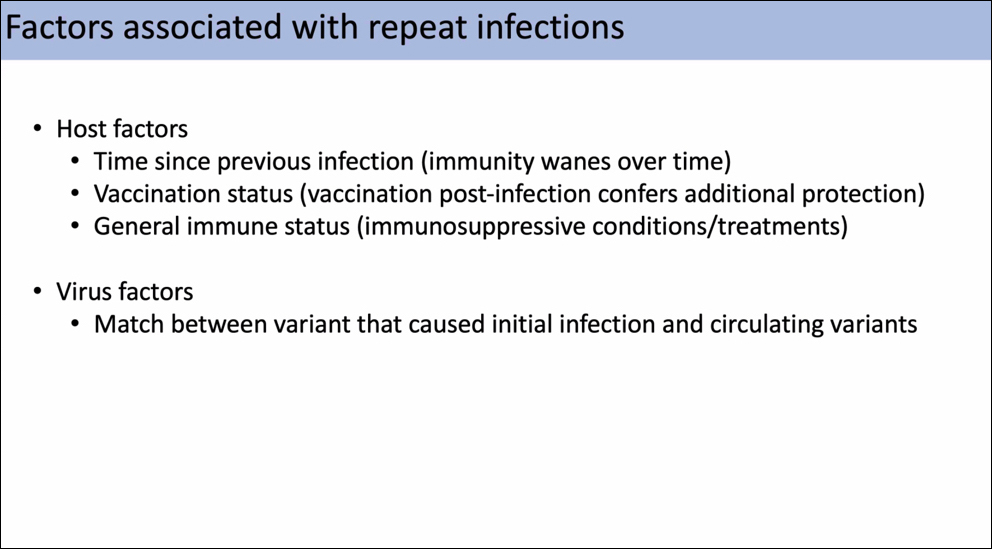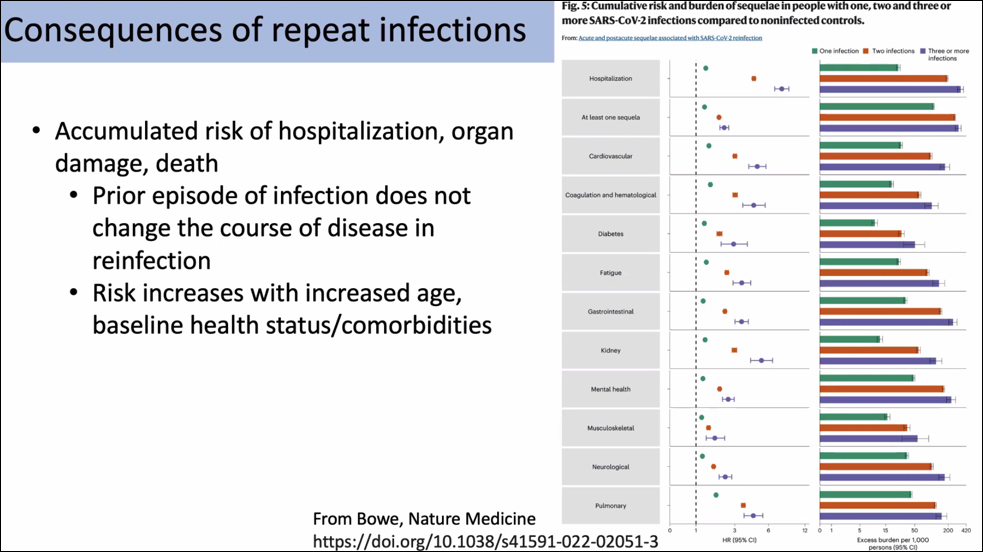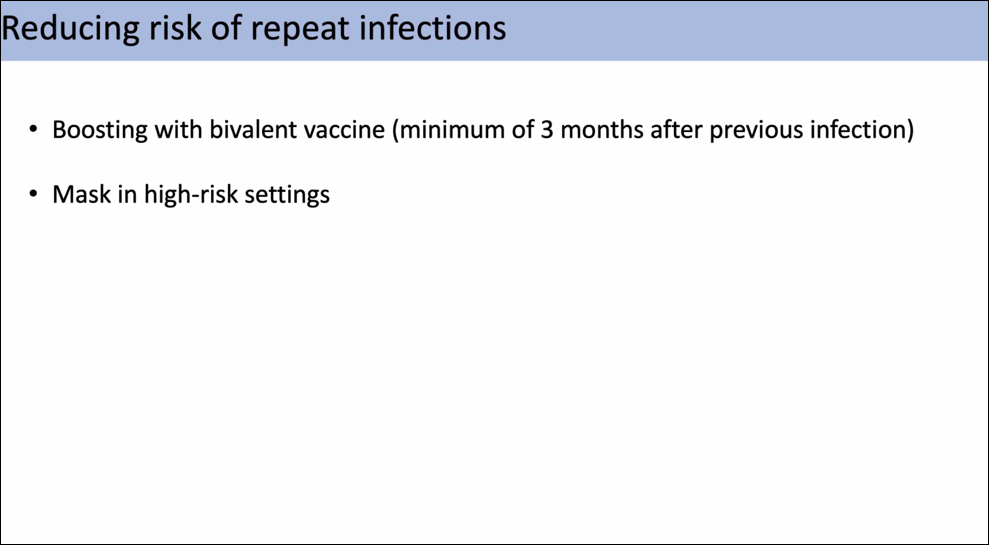The risk of hospitalization, organ damage, and death rises markedly with repeat COVID-19 infection. Assistant professor of medicine Amy Barczak shared a Nature study that used data from the Veteran’s Administration to assess the cumulative risk of post-infection effects in people with one, two, and three or more SARS-CoV-2 infections, as compared to noninfected controls. The data show a consistent pattern of increased likelihood of hospitalization, cardiovascular effects, clotting and other blood disorders, diabetes, fatigue, gastrointestinal distress, kidney damage, mental health effects such as depression, musculoskeletal damage, neurological deficits, and pulmonary damage with each episode. Prior infection does not change the course of disease in subsequent infections, just the risk of severe complications. That risk is connected to baseline health status, including comorbidities such as obesity and other preexisting conditions, and it increases with age.

Factors associated with repeat infections
Screenshot by Harvard Magazine
Some of the factors associated with repeat infection are known, Barczak explained during a call on December 14 with journalists hosted by the Massachusetts Consortium on Pathogen Readiness (MCPR). The most important, she said, is how long it has been since a person was previously infected. “We know that immunity wanes over time,” and while “protection is a complicated thing, clearly there is a downslope in protection over time, post-infection.” In addition, she continued, “vaccination status matters a lot. So if you are infected, and then you get another booster after that infection, that is actually quite protective.” She added that the Centers for Disease Control’s recommendation with respect to boosters is “consistent with what we know about eliciting really protective responses. You’re going to get the most bang for your buck if you wait at least three months after your previous infection to get a booster.”

Repeat infections bring cumulative, increasing risk of hospitalization, organ damage, and death.
Screenshot by Harvard Magazine
A person’s general immune status is another significant risk factor. People with immunosuppressive conditions or who are undergoing immunosuppressive treatments are at especially high risk of reinfection.
In addition to these so-called host factors that affect risk, viral factors also matter, said Barczak, the most important of which is the match between the variant that caused an initial infection and the circulating variants. For “people who have normal immune systems, it’s much less likely that they’re going to be reinfected with the same variant than a new variant that is able to evade detection by their previous antibodies.”

Vaccination and masking can reduce personal risk of reinfection.
Screenshot by Harvard Magazine
To protect themselves and others who may be at higher risk, such as elderly relatives, people should:
- boost with the bivalent vaccine (a minimum of three months after a prior infection);
- mask in high-risk settings; and
- consider the use of rapid antigen tests before attending specific events or gatherings to reduce the chance of infecting others who may be especially vulnerable.
Said Barczak, “I think for many of us around the holidays, when we may be with elderly relatives, or at times that we are in particularly high-risk settings, we know that masking is really important. And it’s a relatively easy intervention.”









